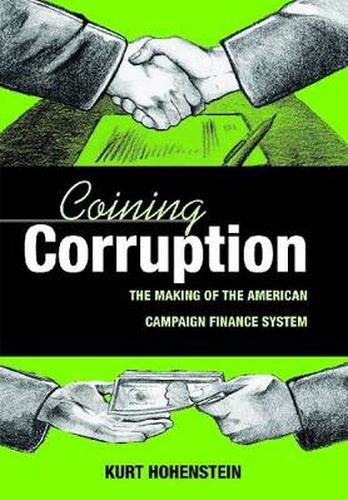Readings Newsletter
Become a Readings Member to make your shopping experience even easier.
Sign in or sign up for free!
You’re not far away from qualifying for FREE standard shipping within Australia
You’ve qualified for FREE standard shipping within Australia
The cart is loading…






In the wake of Watergate, Congress passed the Federal Election Campaign Act (FECA) in an effort to prevent the corruption of future elections. The U.S. Supreme Court, in Buckley v. Valeo (1976), defined corruption as quid pro quo- get for giving -meaning Congress could only regulate the kind of corruption that had occurred if a campaign contributor received political favors from the candidate. This definition has since shaped and limited efforts at campaign finance reform, often with ironic and unintended consequences. By shifting the focus to the source and amount of contributions, the justices in the Buckley decision ignored disparities in funding and the resulting ability of particular candidates to dominate communication channels.
In Coining Corruption, legal and political historian Kurt Hohenstein provides a hitherto untold story about the successes and limitations of political reform. From 1876 until 1976, lawmakers and courts permitted regulation that potentially infringed upon freedom of speech: they understood corruption as the conversion of economic power into political power. In their view, corruption existed if a candidate’s unfettered campaign spending overwhelmed other voices and limited real deliberation. Yet, as Hohenstein shows, Buckley’s limited quid pro quo definition ignores these considerations.
Following the evolution of the campaign finance system through the Bipartisan Campaign Reform Act of 2001 and the Supreme Court’s decisions in McConnell v. FEC (2001) and Landell v. Sorrell (2006), Hohenstein calls for a return to a broad, historical understanding of corruption. American democracy demands regulation of the sources and amounts of campaign funding in order to prevent a monopoly on the vehicles of political debate. Those interested in reform politics, public policy, constitutional history, and Congress will appreciate this groundbreaking study.
$9.00 standard shipping within Australia
FREE standard shipping within Australia for orders over $100.00
Express & International shipping calculated at checkout
In the wake of Watergate, Congress passed the Federal Election Campaign Act (FECA) in an effort to prevent the corruption of future elections. The U.S. Supreme Court, in Buckley v. Valeo (1976), defined corruption as quid pro quo- get for giving -meaning Congress could only regulate the kind of corruption that had occurred if a campaign contributor received political favors from the candidate. This definition has since shaped and limited efforts at campaign finance reform, often with ironic and unintended consequences. By shifting the focus to the source and amount of contributions, the justices in the Buckley decision ignored disparities in funding and the resulting ability of particular candidates to dominate communication channels.
In Coining Corruption, legal and political historian Kurt Hohenstein provides a hitherto untold story about the successes and limitations of political reform. From 1876 until 1976, lawmakers and courts permitted regulation that potentially infringed upon freedom of speech: they understood corruption as the conversion of economic power into political power. In their view, corruption existed if a candidate’s unfettered campaign spending overwhelmed other voices and limited real deliberation. Yet, as Hohenstein shows, Buckley’s limited quid pro quo definition ignores these considerations.
Following the evolution of the campaign finance system through the Bipartisan Campaign Reform Act of 2001 and the Supreme Court’s decisions in McConnell v. FEC (2001) and Landell v. Sorrell (2006), Hohenstein calls for a return to a broad, historical understanding of corruption. American democracy demands regulation of the sources and amounts of campaign funding in order to prevent a monopoly on the vehicles of political debate. Those interested in reform politics, public policy, constitutional history, and Congress will appreciate this groundbreaking study.